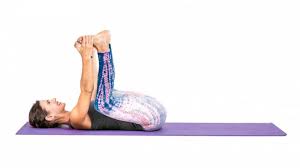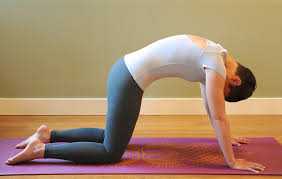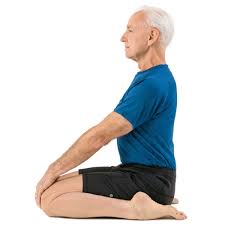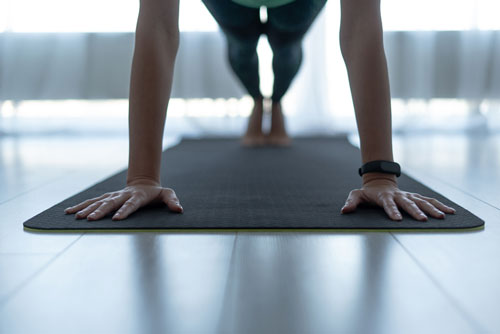One of the biggest challenges of the pandemic is figuring out how to exercise.
Your gym may be closed. Even if it’s open, you may not want to go there.
Team sports have been canceled.
Community pools and tennis courts have been shut down, or activities have been restricted.
Even jogging outdoors is difficult in crowded cities where distancing is not always possible.
And we need physical activity more than ever. Not only is exercise important to keep our lungs and immune system strong. But it’s crucial for mental health.
More than a third of Americans now have signs of clinical anxiety or depression, according to a new federal survey.[1]
The situation has gotten so bad that there’s a nationwide shortage of Zoloft (sertraline). It’s an antidepressant medication.[2]
Study after study shows that exercise works as well as drugs to treat depression and anxiety, but without side effects or the risk of addiction. And one kind of workout may be particularly effective, according to new research.
The study was published in the British Journal of Sports Medicine. Researchers analyzed 19 clinical trials from six countries. All the trials were focused on the effects of yoga on people suffering from psychiatric conditions, including major stress and depression.[3]
The takeaway? Yoga effectively relieves mental health problems brought on by stress.
Researcher Jacinta Brinsley was lead author of the review. “If you’ve thought about trying yoga, now is a great time to take the opportunity,” she said. She points out that you don’t have to leave your home. Instructors often offer classes online.[4]
Dr. Marlynn Wei is a psychiatrist and certified yoga teacher. She said that, with regular yoga practice, “your chronic daytime stress hormone levels drop.” Also, your heart rate variability increases. That’s a measure of your ability to tolerate stress.[5]
“This has been shown to improve even after a few sessions of yoga,” said Dr. Wei.
3 Yoga Poses That Relieve Stress
Dr. Wei said it’s important to learn “ocean breath” before starting:
Inhale and exhale deeply and slowly through your nose. Keep your mouth closed. Constrict the back of your throat. (Think of making a “ha” sound.) Your breathing should be audible “like Darth Vader” said Dr. Wei. Do this while performing each yoga pose.
- Happy
Baby Pose. Lie on your
back. As you exhale, bring your knees to your stomach.
Inhale, and grip the sides of your feet with your hands. (If you can’t reach, drape a belt over the soles of your feet and hold the ends.) Open your knees a bit wider than your torso.

Make sure your shins are perpendicular to the floor. Gently push your feet up while pulling them down with your hands or the belt. You should create a moderate level of resistance.
- Cat Pose. Get on your hands and knees. Make sure your arms are straight and at a right angle to the floor. Your knees should be directly below your hips.

Concentrate on your breathing. When you exhale, curve your back toward the ceiling. Allow your head to tilt toward the floor, but not so much that your chin touches your chest.
As you inhale, bring your back down to a relatively straight position. Continue to alternate the positions with each breath.
- Hero Pose. Kneel on the floor. Keep your back straight. Keep your thighs together and perpendicular to the floor. Position your feet slightly wider than your hips. Point them slightly toward each other. The tops of your feet should be flat on the floor. Rest your hands palms down on your thighs.

Have a rolled-up towel or narrow pillow ready to position on the floor between your feet. Lower your rear onto the cushion. Puff your chest and pull your shoulders back a bit.
The first time you do this pose, hold it for about a minute. Eventually, extend the time to five minutes.
Yoga may be the best natural weapon against the anxiety and depression caused by the pandemic.
Editor’s Note: Is coronavirus stress keeping you awake at night? If so, you’re not alone. One doctor says there’s an epidemic of “COVID-somnia” right now. Discover the four best ways to find calmness amid the pandemic for a good night’s sleep. You’ll find them in our monthly journal Independent Healing. It’s your best source for unbiased, evidence-based health information about COVID-19. CLICK HERE to get your issue now.
Related Articles
Coronavirus Stress: 5 Ways to Keep Calm and Carry On
Simple Trick to Reduce Office Stress
Like this Article? Forward this article here or Share on Facebook.
[1] https://www.usnews.com/news/healthiest-communities/articles/2020-05-27/one-third-of-us-adults-have-signs-of-depression-anxiety-during-pandemic
[2] https://www.bloomberg.com/news/articles/2020-06-01/zoloft-falls-into-shortage-as-virus-heightens-supply-strains
[3]https://bjsm.bmj.com/content/early/2020/04/05/bjsports-2019-101242
[4]https://consumer.healthday.com/infectious-disease-information-21/coronavirus-1008/lockdown-got-you-feeling-low-yoga-may-help-757882.html
[5]https://www.psychologytoday.com/us/blog/urban-survival/201512/yoga-stress-relief

